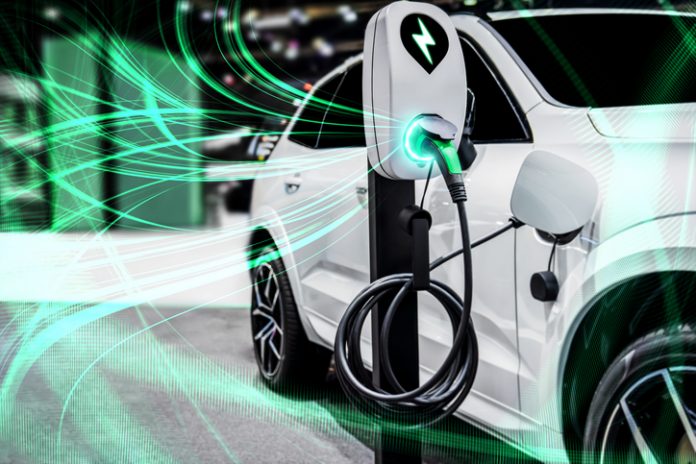Virginia Gov. Glenn Youngkin (R) has announced his opposition to a commonwealth law that requires the state to follow California’s lead and ban the sale of new gas-powered vehicles by 2035.
Virginia Follows California’s Lead
During Virginia’s 2021 legislative session, Democrats who then controlled all branches of government passed HB 1965, tying the commonwealth’s emissions policies to those of the California Air Resources Board (CARB).
The CARB has recently enacted a policy requiring all new cars and light trucks sold in California be so-called “zero-emission” vehicles (ZEVs) by 2035. The ban on vehicles using internal combustion engines is being phased in over time, with 35 percent of new vehicle sales required to be ZEVs by 2026 and 68 percent by 2030.
California receives a waiver from the U.S. Environmental Protection Agency under the Clean Air Act, allowing its emissions standards to exceed those in place federally. Other states are then allowed by EPA to adopt California’s standards. The CARB mandate, based on a 2020 executive order issued by California Gov. Gavin Newsom (D), is the strictest emissions requirement for new vehicle sales in the world.
‘California’s Out Of Touch Laws’
Virginia’s Democrats were trying to turn their state into California, in the process selling out the commonwealth’s residents, who have different values, said Youngkin, in a twitter statement describing his efforts to cut ties with California’s emissions standards.
“In an effort to turn Virginia into California, liberal politicians who previously ran our government sold Virginia out by subjecting Virginia drivers to California vehicle laws,” states Youngkin’s tweet. “Now, under that pact, Virginians will be forced to adopt the California law that prohibits the sale of gas and diesel-fueled vehicles.
“I am already at work to prevent this ridiculous edict from being forced on Virginians,” said Youngkin. “California’s out of touch laws have no place in our Commonwealth.”
While Youngkin’s was just a general statement of opposition, the Virginia’s House of Delegates, now controlled by Republicans, will will take specific action to repeal HB 1965 in the upcoming legislative session, said Todd Gilbert (R-Woodstock), speaker of the Virginia House of Delegates, in a statement.
“House Republicans will advance legislation in 2023 to put Virginians back in charge of Virginia’s auto emission standards and its vehicle marketplace,” Gilbert said. “Virginia is not, and should not be, California.”
‘Artificially Inflate the Price’
The law will force dealers to dramatically increase the price of non-electric vehicles to shift consumer demand toward EVs, harming working class Virginians, Virginia Attorney General Jason Miyares (R) told 7News.
“What [HB 1965] has done is it has created a radical restructuring in Virginia of our automobile market,” said Miyares. “You are not allowed to buy any non-EV car starting next decade, and even in the short term, it says that by the year 2026, 35 percent of all vehicle sales have to be EVs.In Virginia last year that number was 2 percent.”
Auto manufacturers and dealers will discount expensive EVs, while raising the prices of conventional vehicles, said Miyares.
“I’ve talked to dealers, they’re going to have to artificially inflate the price of any non-EV car to try to meet that goal, which means your average working class Virginian is going to be…overpaying what they would normally pay for a non-EV vehicle to try to reach parity,” Miyares said. “That’s grossly unfair to our working class Virginians…this is saying for us to reach this goal, we’re going to have to artificially inflate the price of every non-EV vehicle, which means every working class Virginian is subsidizing the electric vehicle bought by every doctor and every lawyer and every wealthy business owner. I don’t think that is fair, that’s definitely not equity.”
Election May Decide Emissions Fate
However, Democrats control the Virginia Senate, and President Pro Tempore Louise Lucas (D-Portsmouth) has stated that if a House bill rescinding HB 1965 does make it to the Senate she would be “obliged to just throw it in the trashcan.”
This means that for a modification or full repeal of HB 1965 to be likely to succeed next year, Republicans will need to gain control of the Senate when voters go to the polls this November.
Another obstacle to Republican attempts to remove the state from the California standards is the Virginia Auto Dealers Association (VADA), self-proclaimed as “one of the most successful and influential lobbying groups in Virginia,” which approves of the ZEV mandate.
“The EV Revolution is here, auto manufacturers are committed globally to EVs,” said Don Hall VADA president and CEO, in a statement. “As we have seen from the direction of manufacturers and in global politics, electric is the future of transportation and adoption of Zero-Emission Vehicle … standards positions Virginia as a leader in a worldwide movement.”
Hall admits VADA’s stance is at odd with that of many other states automobile dealership associations and called for public support to help the ZEV mandate succeed.
“Our position in support of the ZEV mandates was not the traditional posture of dealer associations,” Hall’s statement said. “We believe we charted the right course for Virginia dealers. We would not have been in the position to affect the EV issue more broadly had we taken a different position on this issue. We drove home the point that much more investment is needed on many fronts to make the adoption of EVs in Virginia a success.”
Tim Benson (tbenson@heartland.org) is a senior policy analyst at The Heartland Institute.
For more on California’s clean air waivers, click here.
For more on electric vehicles, click here.
For more on Virginia’s air policy policy, click here.
For more on the U.S. Clean Air Act, click here.


























